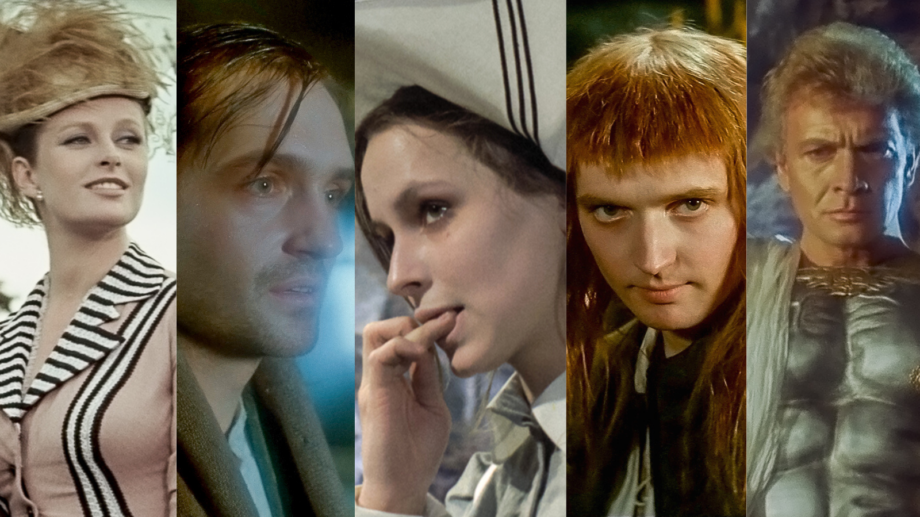Film at Lincoln Center and DI Factory announce “The Long Strange Trips of Wojciech Jerzy Has,” a comprehensive celebration of the Polish filmmaker’s singularly inventive filmography, featuring an array of new digital restorations. The retrospective will be presented at FLC from March 22 through March 31 and includes each of Has’s 14 features and all of his short films.
One of the key Polish directors to emerge in the second half of the 20th century, few filmmakers can boast an oeuvre as intricate, kaleidoscopic, and visionarily political as that of Wojciech Jerzy Has. A consummate stylist whose films feel like worlds unto themselves, Has’s work collapses past and present, dreams and reality, cinema and literature, in order to trace an indelibly idiosyncratic portrait of Poland and its collective psyche through the turbulence of the World War II era into an uncertain future. Through films like The Saragossa Manuscript (1965), The Doll (1968), and The Hourglass Sanatorium (1973), Has cultivated an arrestingly phantasmagoric cinematic universe all his own, one whose profound influence has been acknowledged by the likes of such titans of the medium as Martin Scorsese and Francis Ford Coppola.
Highlights of the series include Has’s iconic aforementioned films The Saragossa Manuscript (1965), among the most engrossing formal experiments of the 1960s and notably beloved by The Grateful Dead’s Jerry Garcia; The Doll (1968), a lavish period epic chronicling the decline of the Polish aristocracy as their social perch is usurped by the ascendant capitalist class; and a 4K restoration of NYFF58 Revivals selection The Hourglass Sanatorium (1973), a visionary and poetic reflection on the nature of time and death, which won the Jury Award at Cannes.
Additional highlights include Has’s debut feature The Noose (1958), which already bears his artistic signature and expressionistically renders the post-traumatic delirium dwelling within the everyday; How to Be Loved (1963), one of the most acclaimed works of Has’s early career and a key expression of the traumatic impact of WWII on the Polish psyche, a central preoccupation within his filmography; An Uneventful Story (1983), Has’s first film after a decade-long filmmaking ban, about an aging medical professor who looks back on the events of his life; and Has’s final film, The Tribulations of Balthazar Kober (1988), which follows a young alchemy student and his teacher as they flee the Inquisition across 16th-century Europe, marking one last long, strange trip for the filmmaker.
In addition to Has’s feature films, select titles will be preceded by a short film by Has. The series will also include a separate program that collects Has’s early fiction and documentary shorts, ranging from fascinating industrial films to assured miniature parables.
Annette Insdorf, author of Intimations: The Cinema of Wojciech Has, will introduce select screenings.
Organized by Dan Sullivan (FLC), Jedrzej Sablinski (DI Factory), and Polish Cultural Institute New York. Retrospective is co-financed by Polish Film Institute.
Acknowledgements:
Annette Insdorf and Milestone Films
Tickets go on sale on Thursday, February 22 at 2pm, with an early access period for FLC Members starting at noon. Tickets are $17; $14 for students, seniors (62+), and persons with disabilities; and $12 for FLC Members. See more and save at FLC with an All-Access Pass ($150 for GP, $99 for Students) or 3+ Film Package ($15 for general public; $12 for students, seniors (62+), and persons with disabilities; and $10 for FLC Members). Add dinner at Café Paradiso, located in FLC’s Elinor Bunin Munroe Film Center, with our $35 Dinner + Movie Combo.
FILMS & DESCRIPTIONS
All films screen at the Walter Reade Theater (165 W. 65th St.)
The Noose
Wojciech Jerzy Has, 1958, Poland, 96m
Polish with English subtitles
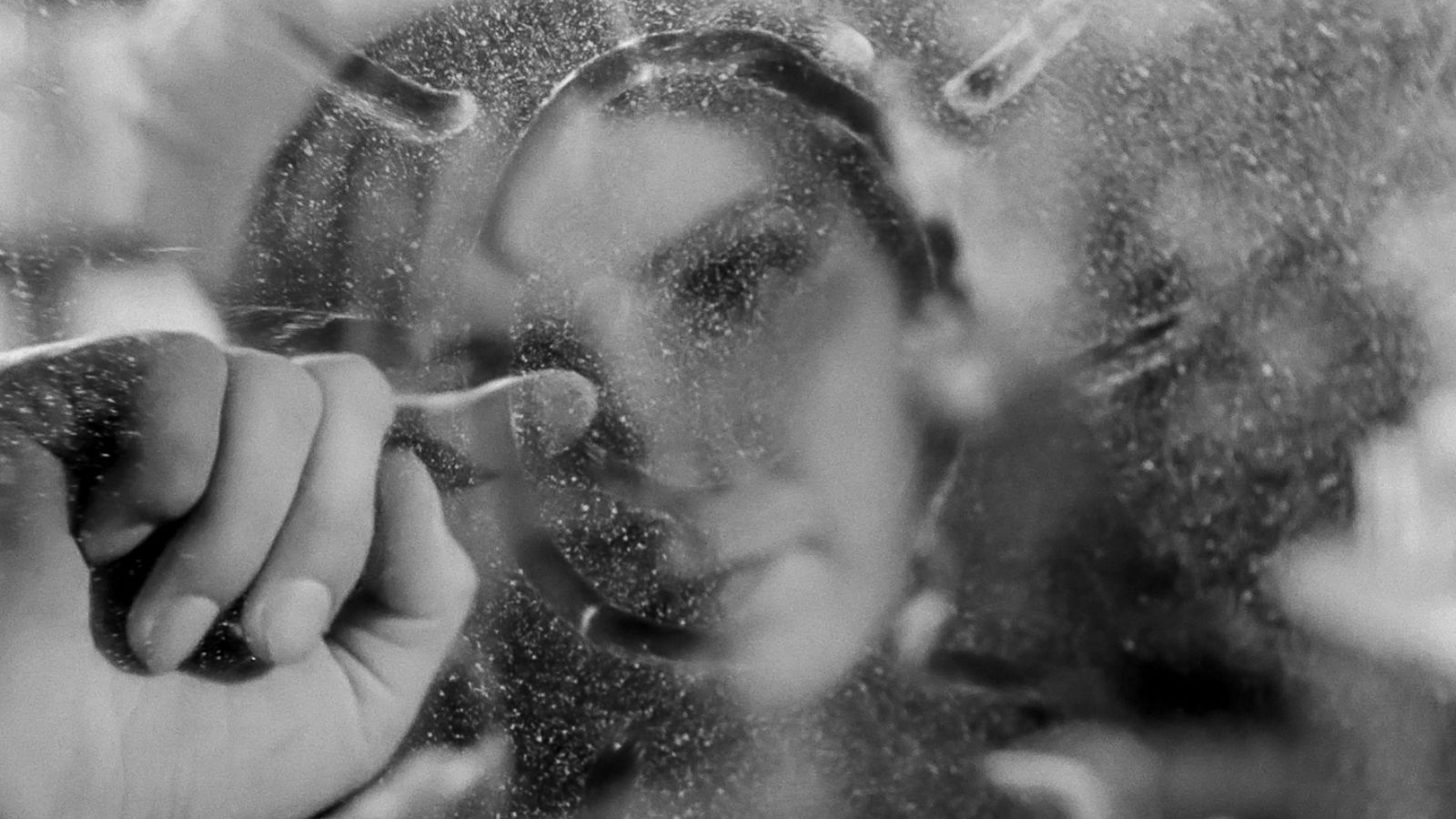
The Noose / © WFDiF
Has’s debut feature—following a day in the life of a desperate, chaotic drunkard (frequent Has collaborator Gustaw Holoubek) as he wanders about and fends off appeals from his girlfriend to enter a treatment facility—already bears his artistic signature, expressionistically rendering the post-traumatic delirium dwelling within the everyday and conjuring a labyrinth of paranoia, claustrophobia, and urban malaise. Digital restoration by Fixafilm, 2020.
Screening with:
Brzozowa Street
Wojciech Jerzy Has, 1947, Poland, 9m
In this early short documentary, Warsaw pieces itself back together after the end of World War II. Digital restoration by WFDiF, 2013.
Friday, March 22 at 9:15pm
Saturday, March 30 at 9:15pm
Farewells
Wojciech Jerzy Has, 1958, Poland, 97m
Polish with English subtitles
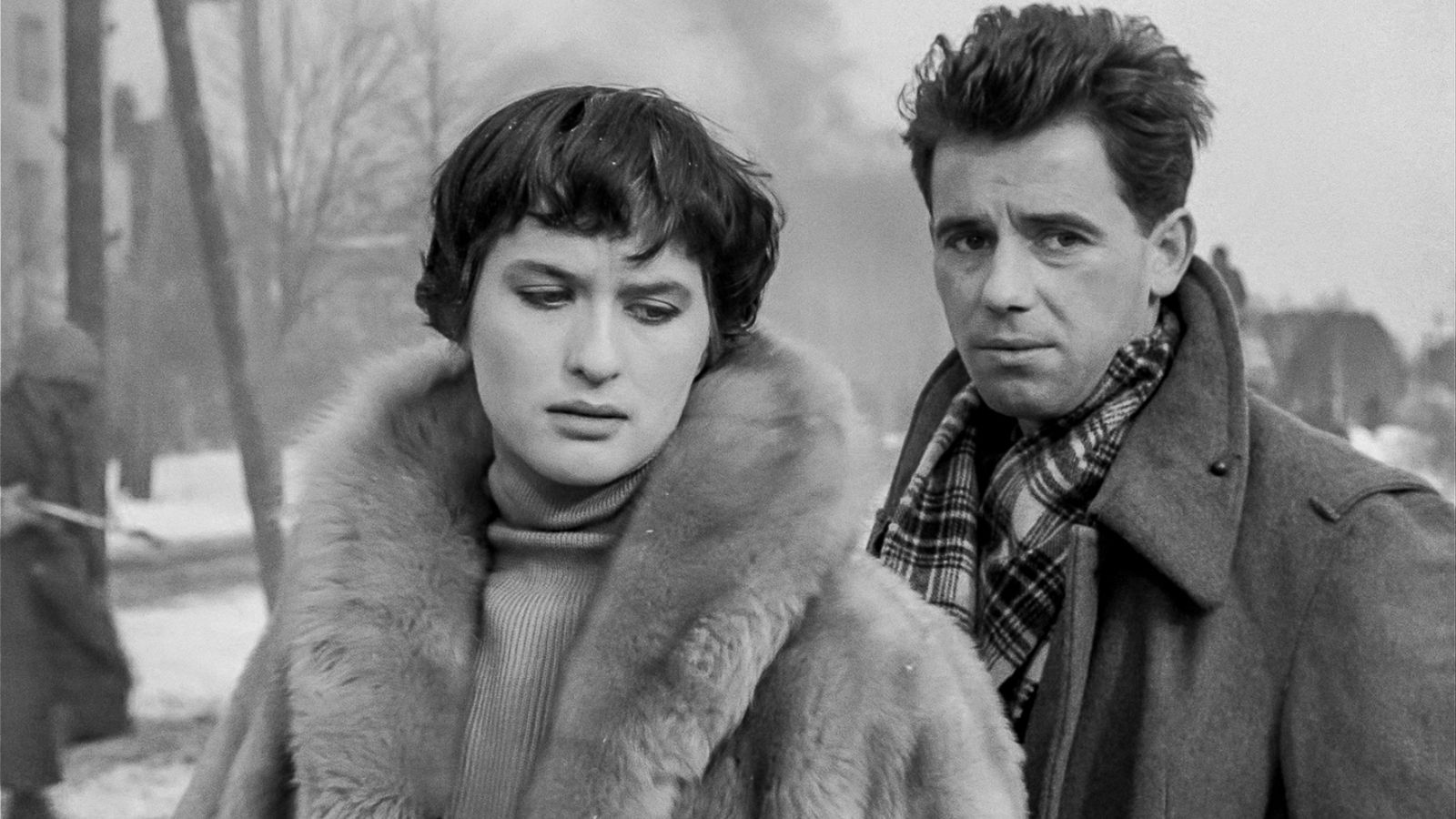
Farewells / © WFDiF
Also known as Lydia Ate the Apple, Has’s second feature—co-written with Stanisław Dygat, who penned the film’s source novel—chronicles a budding, doomed romance between a bourgeois student and a world-weary barmaid in prewar Poland. Social forces and the winds of war seem poised to keep the lovers apart, but Has contemplates the possibility of redemptive love in a time of violent upheaval. Digital restoration by Fixafilm, 2018.
Screening with:
Centralized Control of Production Flow – Sugar
Wojciech Jerzy Has, 1951, Poland, 12m
This short documentary fascinatingly depicts a seldom-captured but economically fundamental process: the production and distribution of sugar. Digital restoration by WFO, 2016.
Sunday, March 24 at 1:00pm
Tuesday, March 26 at 3:30pm
One Room Tenants
Wojciech Jerzy Has, 1960, Poland, 92m
Polish with English subtitles
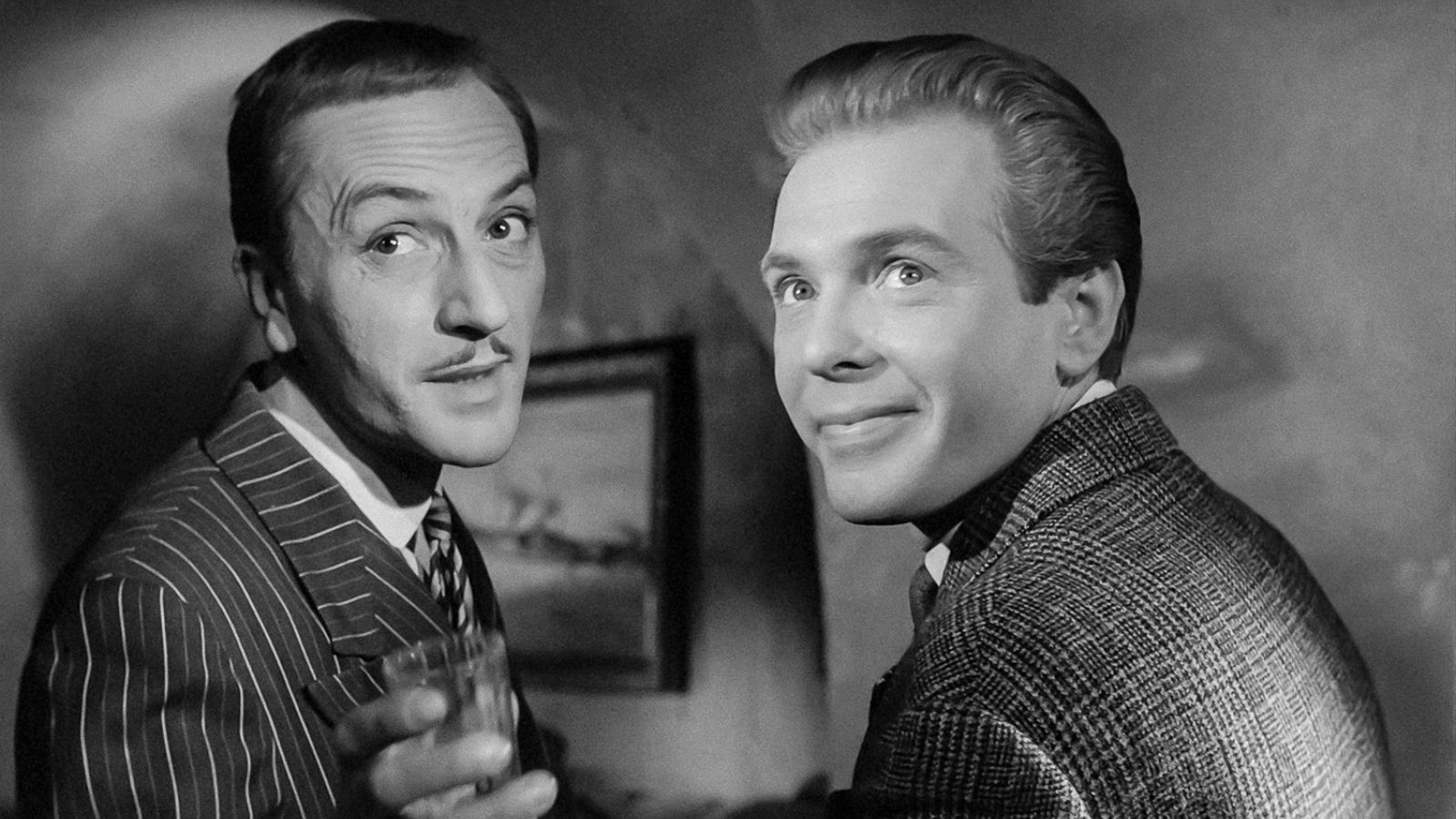
One Room Tenant / © WFDiF
Has continues his preoccupation with the relationship between cinema and literature in his darkly funny third feature, about a sickly writer and the overcrowded single-room apartment he shares with a motley assortment of acquaintances and near-strangers in 1930s Warsaw. Evoking an altogether different kind of claustrophobia than in The Noose, One Room Tenants pays a kind of cynical tribute to the dreams and desires of Poles before the catastrophe of World War II. Digital restoration by DI Factory, 2019.
Screening with:
My Town
Wojciech Jerzy Has, 1950, Poland, 7m
Perhaps Has’s most personal film: a documentary portrait of his hometown of Kraków, on the eve of his departure from the city. Digital restoration by WFDiF, 2013.
Sunday, March 24 at 8:30pm
Thursday, March 28 at 1:30pm
Goodbye to the Past
Wojciech Jerzy Has, 1961, Poland, 72m
Polish with English subtitles
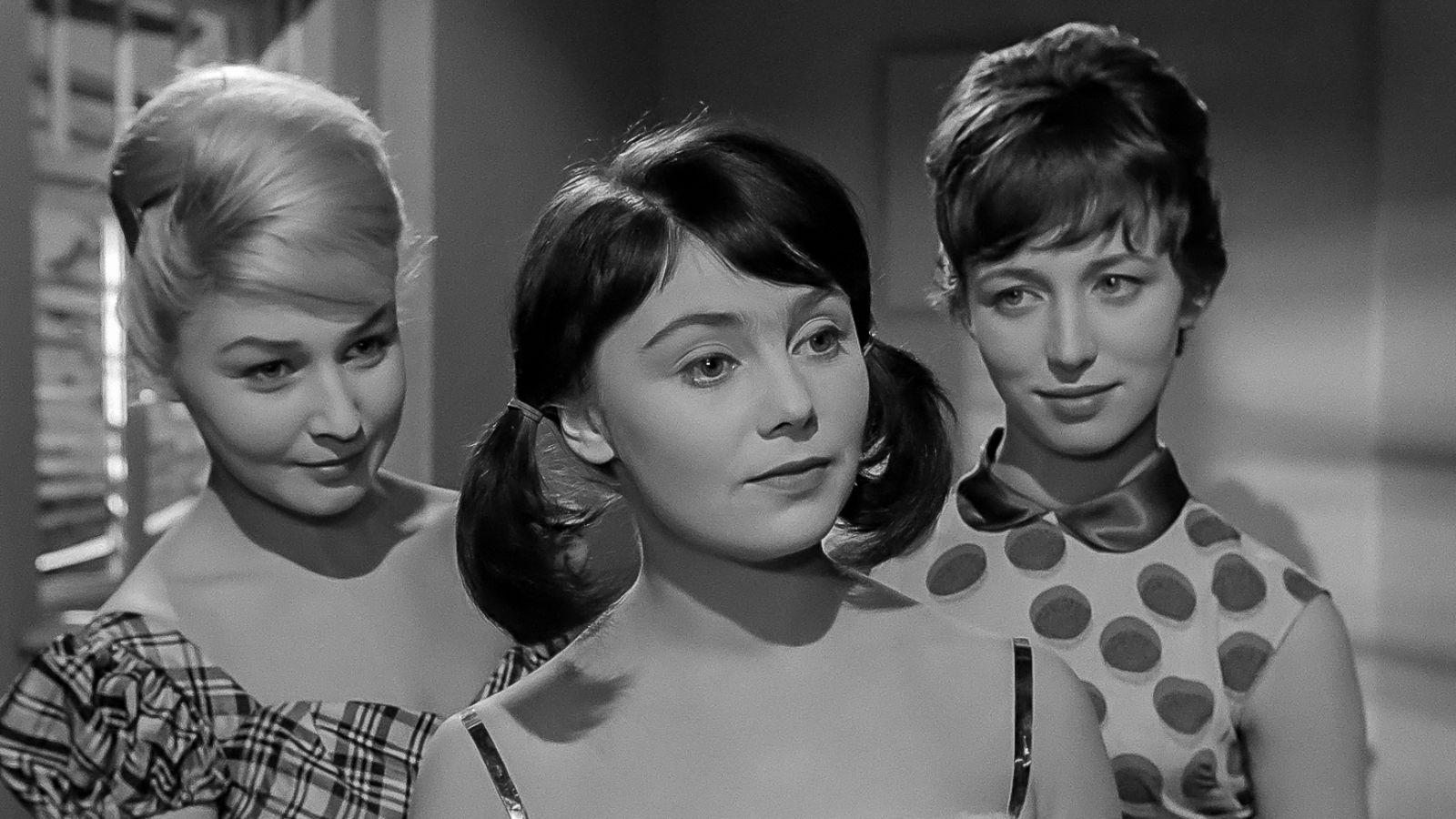
Goodbye to the Past / © WFDiF
Again adapting the work of writer Stanisław Dygat, Has’s fourth feature follows decorated actress Magdalena (Lidia Wysocka) as she returns to her hometown to attend her grandfather’s funeral, occasioning her to revisit her family’s own history and to meditate on the myriad forms of acting that feed into the performance of family. Has sensitively plumbs the past to examine the nostalgia and regret that reside within the heart of our sense of where we’ve come from and where we’re going. Digital restoration by DI Factory, 2019.
Screening with:
Steam Engine Pt. 47
Wojciech Jerzy Has, 1949, Poland, 8m
This industrial documentary takes as its subject the first Polish steam locomotive. Digital restoration by WFDiF, 2022.
Sunday, March 24 at 6:30pm
Tuesday, March 26 at 1:30pm
Gold Dreams
Wojciech Jerzy Has, 1962, Poland, 91m
Polish with English subtitles
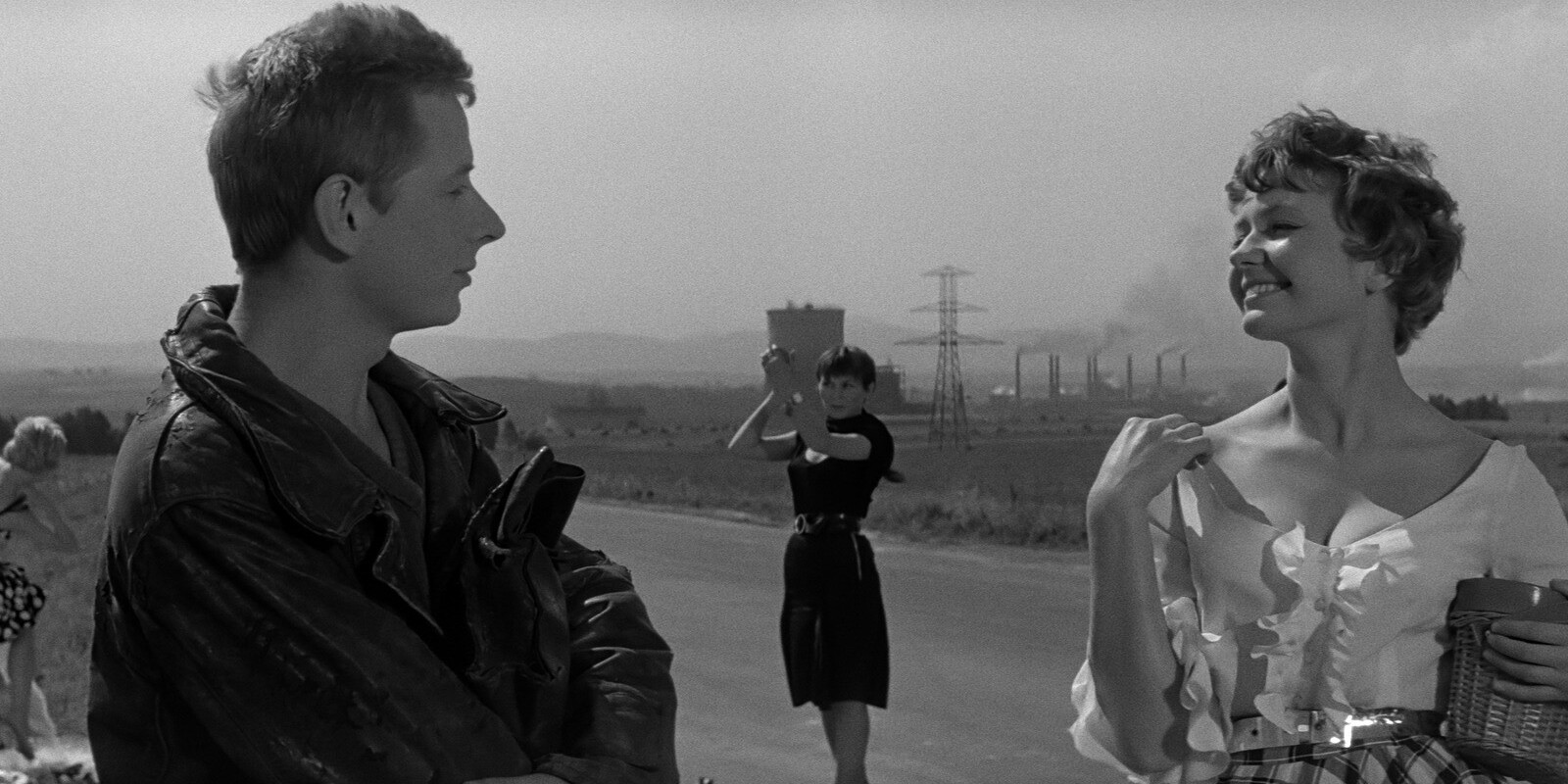
Gold Dreams / © WFDiF
Memory and guilt intertwine and drive a young drifter to hide out amid a desolate, oneiric landscape in Has’s fifth feature. Synthesizing aspects of the western and the film noir, Gold Dreams follows a man who flees from a road accident in which he might have killed another man. After heading out on the lam, his wanderings bring him to a remote mining outpost populated by men desperate to strike it rich and thereby forge new identities for themselves. Digital restoration by DI Factory, 2023.
Screening with:
First Harvest
Wojciech Jerzy Has and Jan Zelnik, 1950, Poland, 21m
This documentary short captures the day-to-day of a Polish agricultural cooperative. Digital restoration by DI Factory, 2023.
Monday, March 25 at 6:00pm
Wednesday, March 27 at 1:00pm
How to Be Loved
Wojciech Jerzy Has, 1963, Poland, 92m
Polish with English subtitles
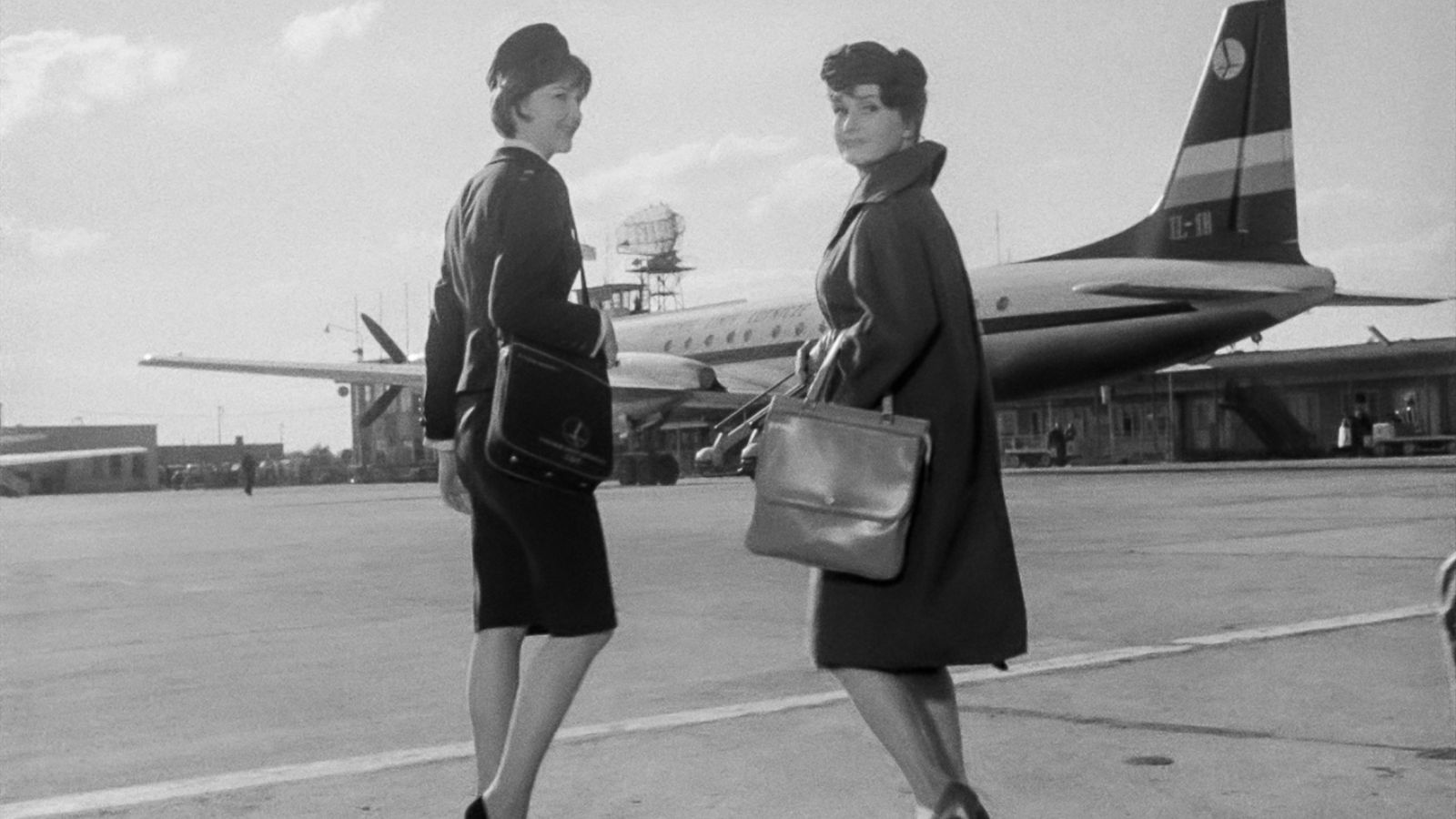
How to be Loved / © WFDiF
One of the most acclaimed works of his early career, Has’s sixth feature follows a popular radio actress (Barbara Krafftówna) on a trip to Paris, where she crosses paths with another actor (Zbigniew Cybulski) with whom she had a fraught love affair and subsequent betrayal during World War II. The multifaceted and engrossing How to Be Loved ranks as a key expression of a central preoccupation within Has’s filmography—namely, the lasting scars upon the Polish collective psyche left by the trauma of the war. Digital restoration by Fixafilm, 2013.
Screening with:
Harmony
Wojciech Jerzy Has, 1948, Poland, 10m
Has’s first film (and his first fiction) follows a young boy who dreams of being able to buy an accordion. Digital restoration by WFDiF, 2023.
Friday, March 22 at 6:45pm
Wednesday, March 27 at 3:30pm
The Saragossa Manuscript
Wojciech Jerzy Has, 1965, Poland, 182m
Polish with English subtitles
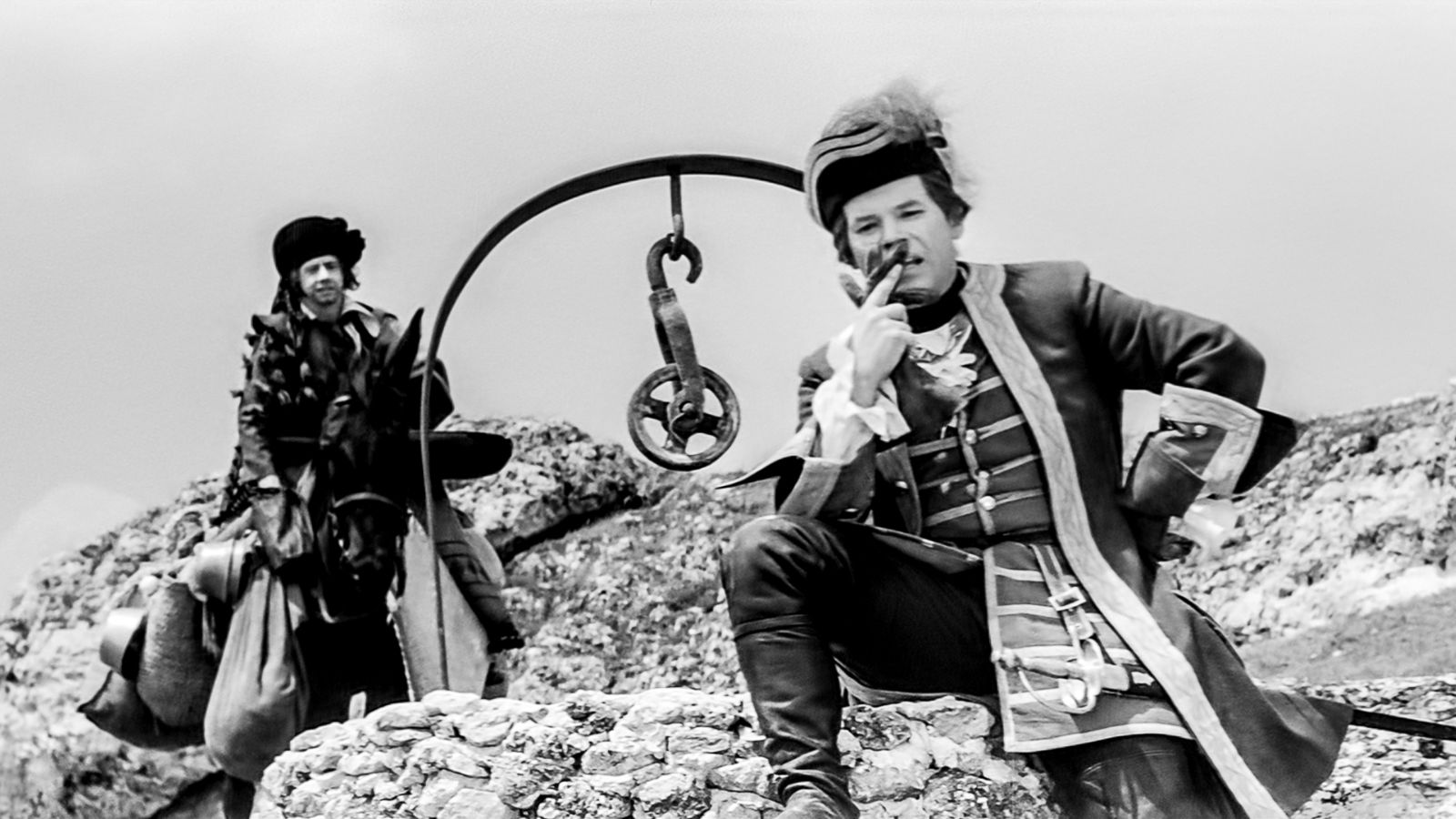
The Saragossa Manuscript / © WFDiF
Based on one of the greatest works of world literature (Jan Potocki’s early-19th-century novel), The Saragossa Manuscript centers on a mountain-crossing that turns into a sequence of supernatural and frightful events for the skeptical Alphonse van Worden (Zbigniew Cybulski), a military officer wandering through Spain. Among the most engrossing formal experiments of the 1960s, the film is a spellbinding adventure in cinematic meta-narrative and visual invention, an endlessly rich tapestry of stories within stories, and arguably Has’s greatest and most enduringly influential achievement. Digital restoration by The Chimney Pot, 2011.
Saturday, March 23 at 5:30pm
Friday, March 29 at 6:30pm
Saturday, March 30 at 3:00pm
Codes
Wojciech Jerzy Has, 1966, Poland, 80m
Polish with English subtitles
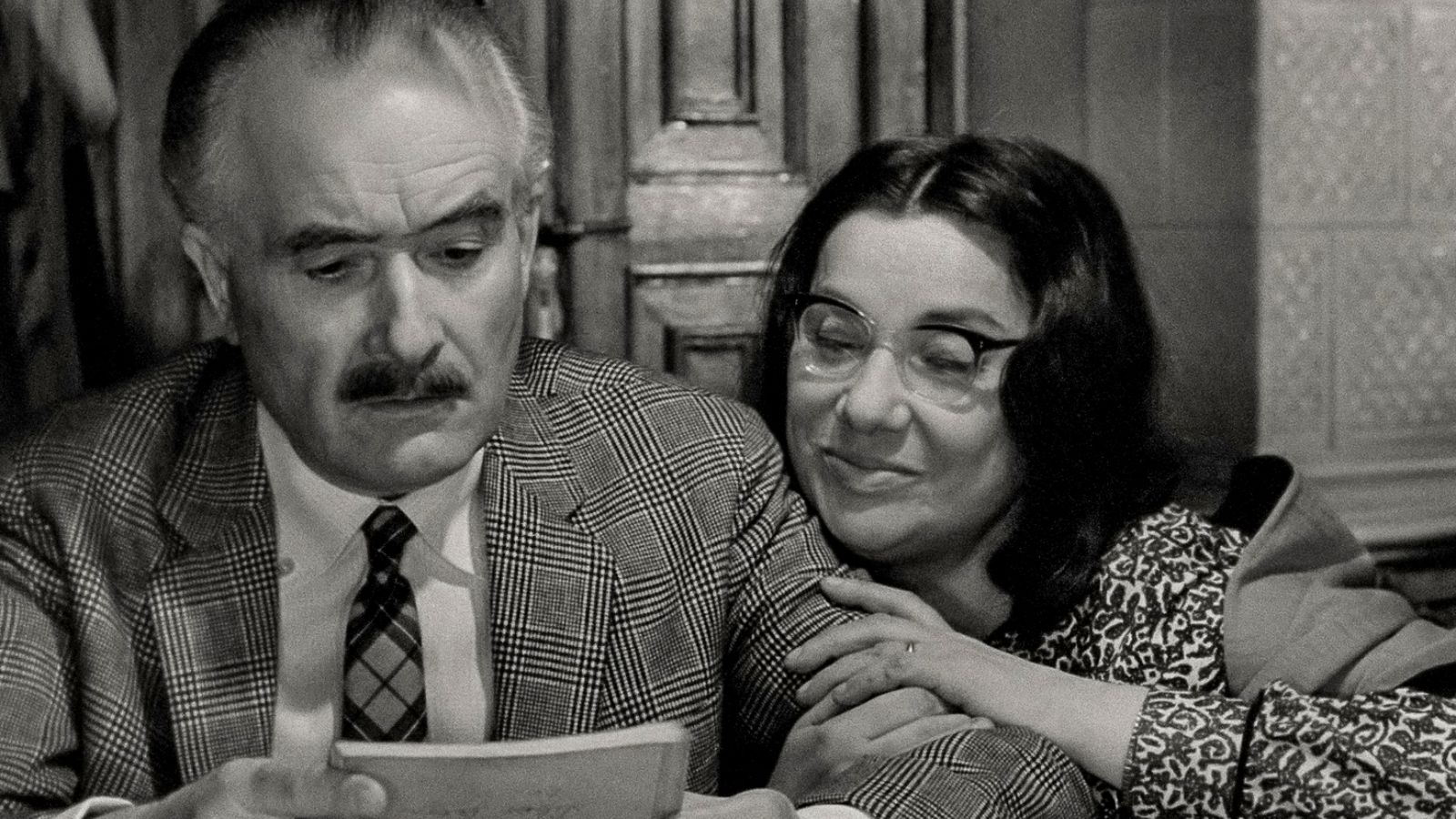
The Codes / © WFDiF
A man’s (Zbigniew Cybulski) return to Kraków following 20 years of self-imposed exile in London serves as the narrative setup for Has’s eighth feature, one whose thematic and formal developments presage his later masterpieces. Upon returning to Kraków, the man is haunted by the uncertain fate that met his son during World War II, and as he tries to investigate, he soon discovers something—a secret code? A private language?—seems to be preventing him from communicating with his former friends and family. Digital restoration by DI Factory, 2019.
Screening with:
Scouts at Rally
Wojciech Jerzy Has, 1952, Poland, 18m
A fascinating documentary reportage from the Rally of Young Pioneer Builders of the People’s Republic of Poland (the Communist version of the Boy Scouts, essentially). Digital restoration by WFO, 2014.
Monday, March 25 at 8:30pm
Thursday, March 28 at 3:45pm
The Doll
Wojciech Jerzy Has, 1968, Poland, 153m
Polish with English subtitles
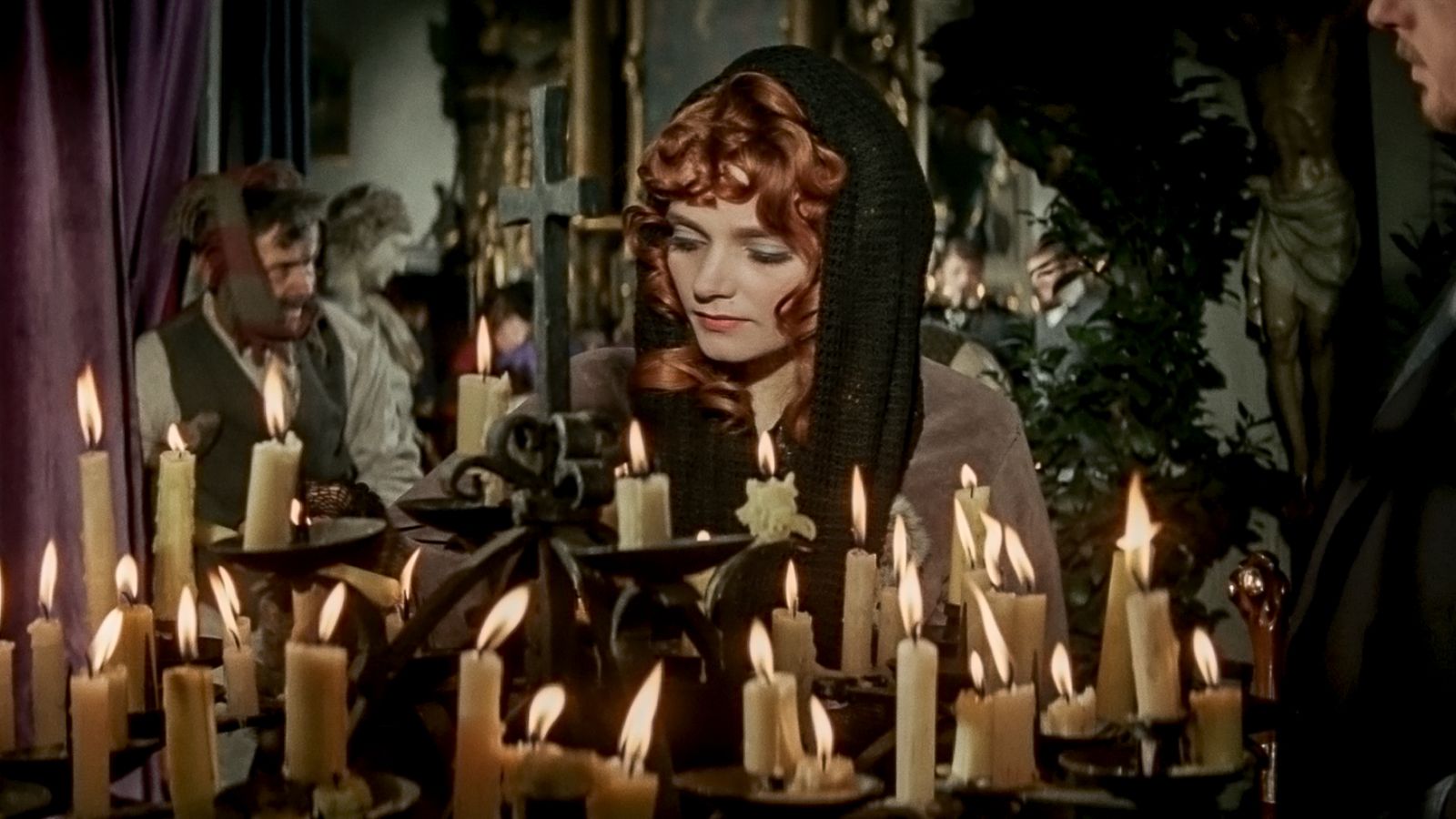
The Doll / © WFDiF
Adapted from Bolesław Prus’s 19th-century novel, The Doll is Has’s follow-up to the The Saragossa Manuscript, a lavish period epic that matches that seminal film’s vast ambitions. Chronicling the decline of the Polish aristocracy as their social perch is usurped by the ascendant capitalist class, The Doll follows a new-money merchant and his many attempts to capture the heart of a down-on-her-luck contessa (Beata Tyszkiewicz). Has’s faithful adaptation of Prus’s novel is rendered particularly dreamy by his signature swooning, gliding camera movements, conjuring a sense of the present as always being a dream of the past. Digital restoration by FixaFilm, 2019.
Sunday, March 24 at 3:30pm
Thursday, March 28 at 8:45pm
Sunday, March 31 at 6:30pm
The Hourglass Sanatorium
Wojciech Jerzy Has, 1973, Poland, 124m
Polish with English subtitles
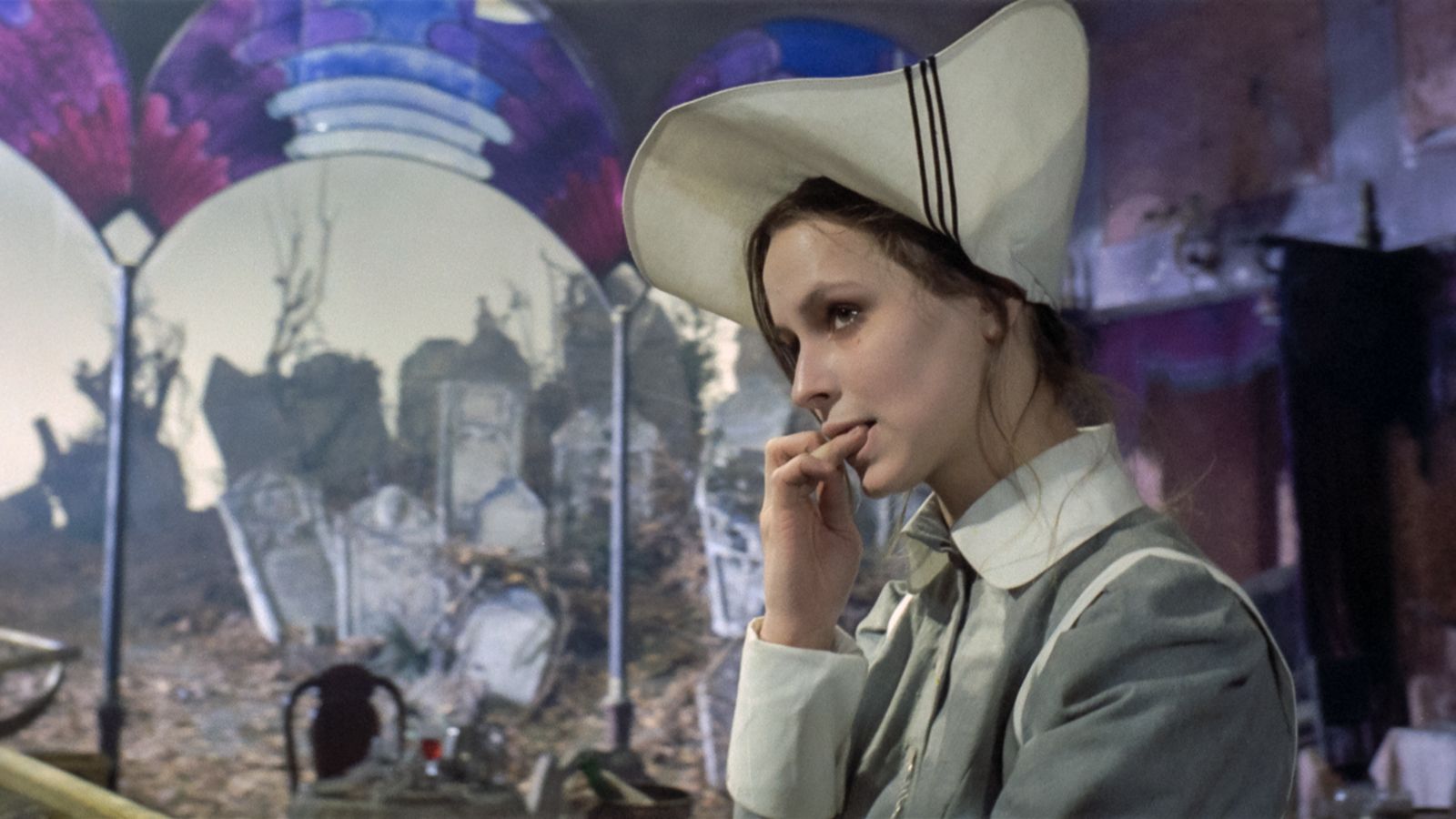
The Hourglass Sanatorium / © WFDiF
The collective trauma of the Holocaust looms over this adaptation of Jewish author Bruno Schulz’s visionary and poetic reflection on the nature of time and death, which won the Jury Award at Cannes. Józef (Jan Nowicki) finds himself aboard a train en route to visit his father in the hospital; he arrives to find the hospital in a state that’s a bit less than… orderly. From there, past and present, reality and fantasy, collapse into each other, unleashing a surreal phantasmagoria that is by turns psychedelic, paranoiac, elegiac, funny, and everywhere haunted by the specter of death: both Józef’s prophesied death and the death of a Europe that existed before the rise of Hitler, the horrors of the Holocaust, and the carnage of World War II. An NYFF58 Revivals selection. 4K restoration from the original camera negative. Digital restoration 4K by FixaFilm, 2020.
Saturday, March 23 at 9:00pm
Thursday, March 28 at 6:00pm
Saturday, March 30 at 6:30pm
An Uneventful Story
Wojciech Jerzy Has, 1983, Poland, 106m
Polish with English subtitles
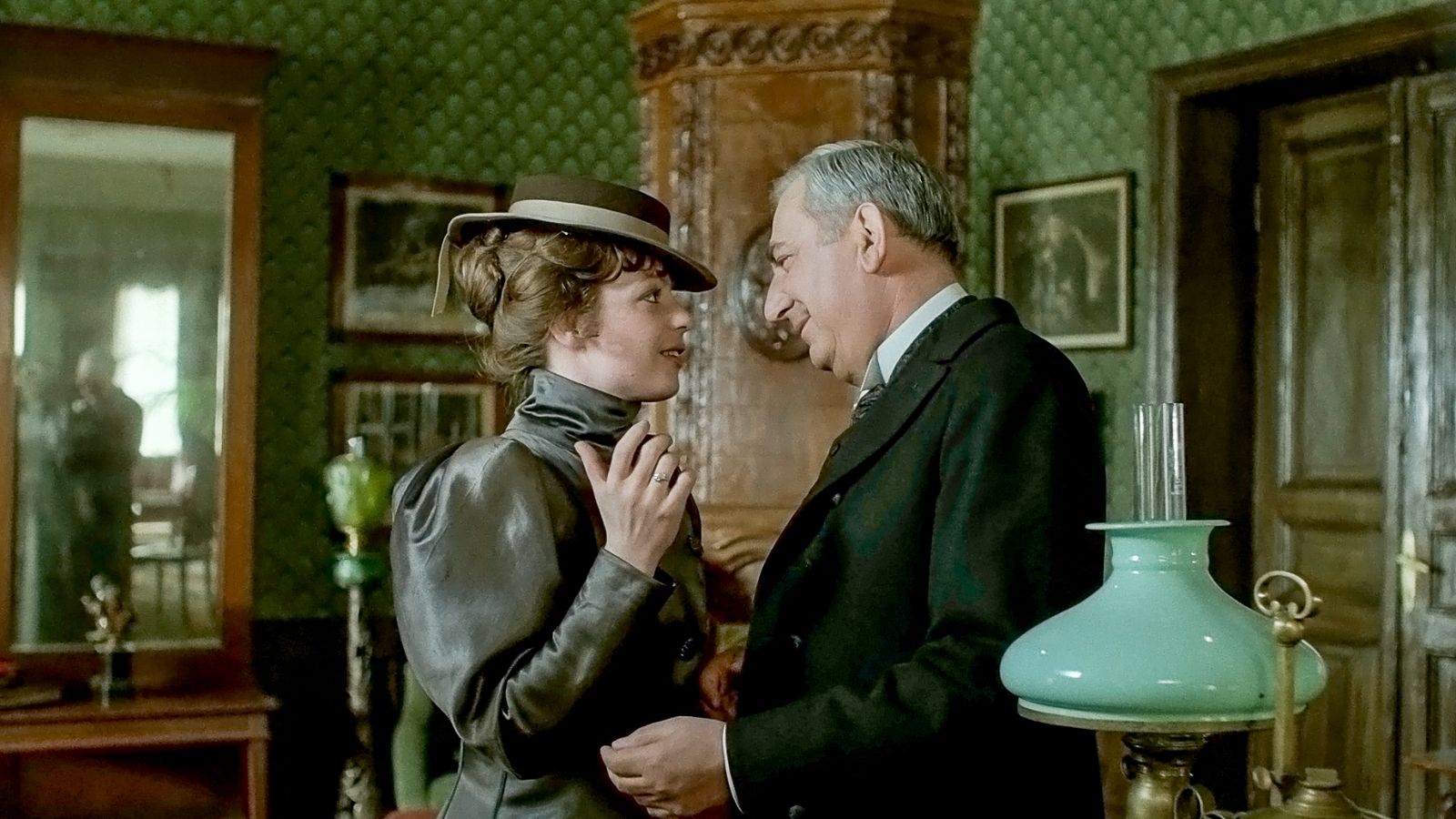
An Uneventful Story / © WFDiF
Has’s first film after a decade-long filmmaking ban (for submitting The Hourglass Sanatorium to Cannes without permission from the Polish government), An Uneventful Story was initially planned as the follow-up to The Saragossa Manuscript before Polish censors rejected his proposal. Returning to the smaller-scale storytelling of Has’s earlier films and working from a story by Anton Chekhov, this intimate yet kaleidoscopic film follows an aging medical professor as he looks back on the events of his life, ruminating on its myriad frustrations and lingering regrets. Digital restoration by DI Factory, 2019.
Tuesday, March 26 at 6:00pm
Friday, March 29 at 1:00pm
Write and Fight
Wojciech Jerzy Has, 1985, Poland, 120m
Polish with English subtitles
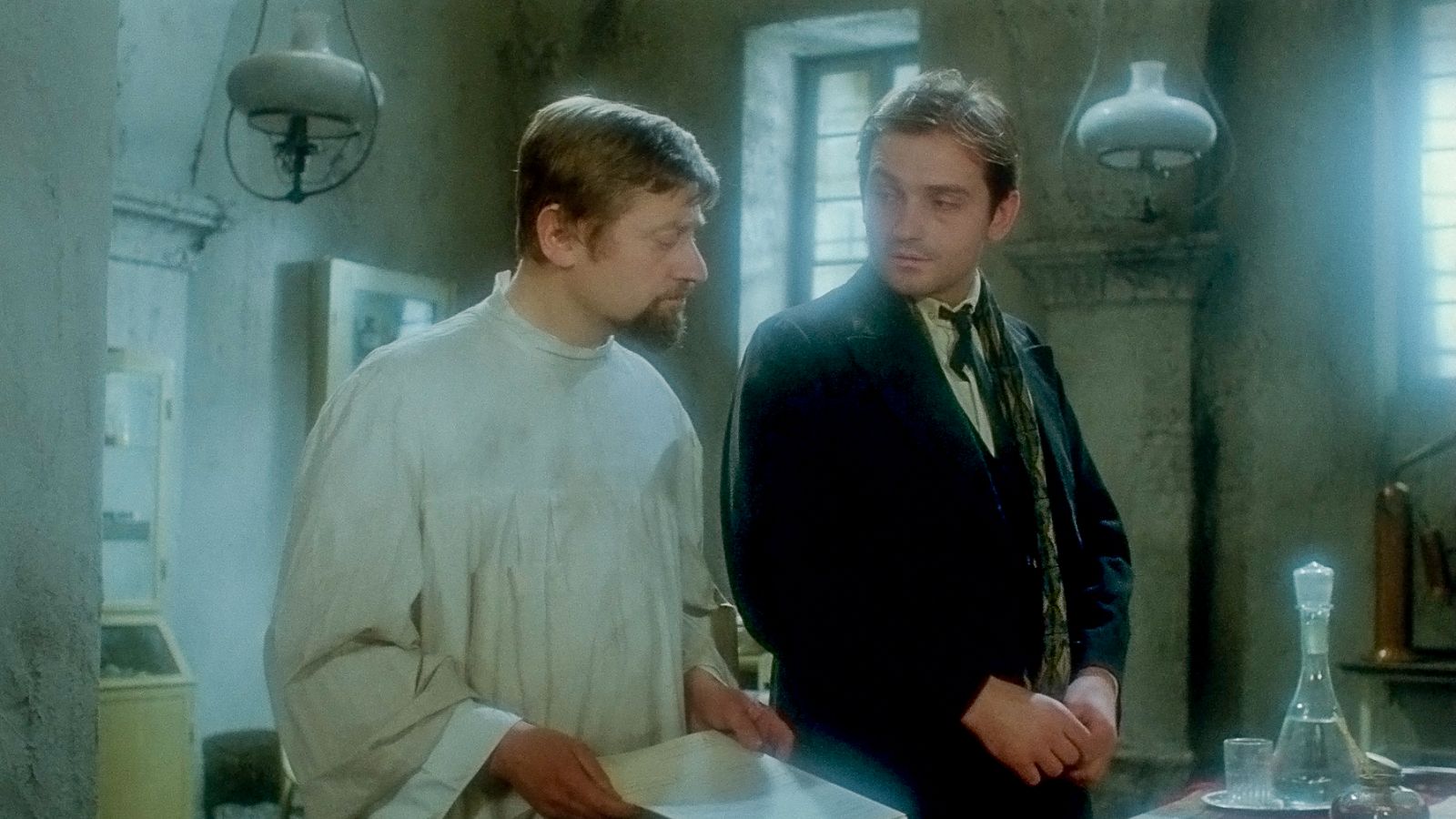
Write and Fight / © WFDiF
One of Has’s most potent satires, Write and Fight is set at the outset of World War I and follows a young journalist who finds himself incarcerated in a Russian prison, where he’s forced to share a cell with a safecracker and a monk-turned-murderer while the authorities investigate their respective cases. The journalist starts taking notes on his present plight with an eye toward publishing a book down the road, but when he contracts typhoid fever, the partition between reality and fantasy slowly begins to crumble and a powerful delirium takes hold. Digital restoration by DI Factory, 2020.
Tuesday, March 26 at 8:30pm
Friday, March 29 at 3:30pm
Memoirs of a Sinner
Wojciech Jerzy Has, 1986, Poland, 114m
Polish with English subtitles
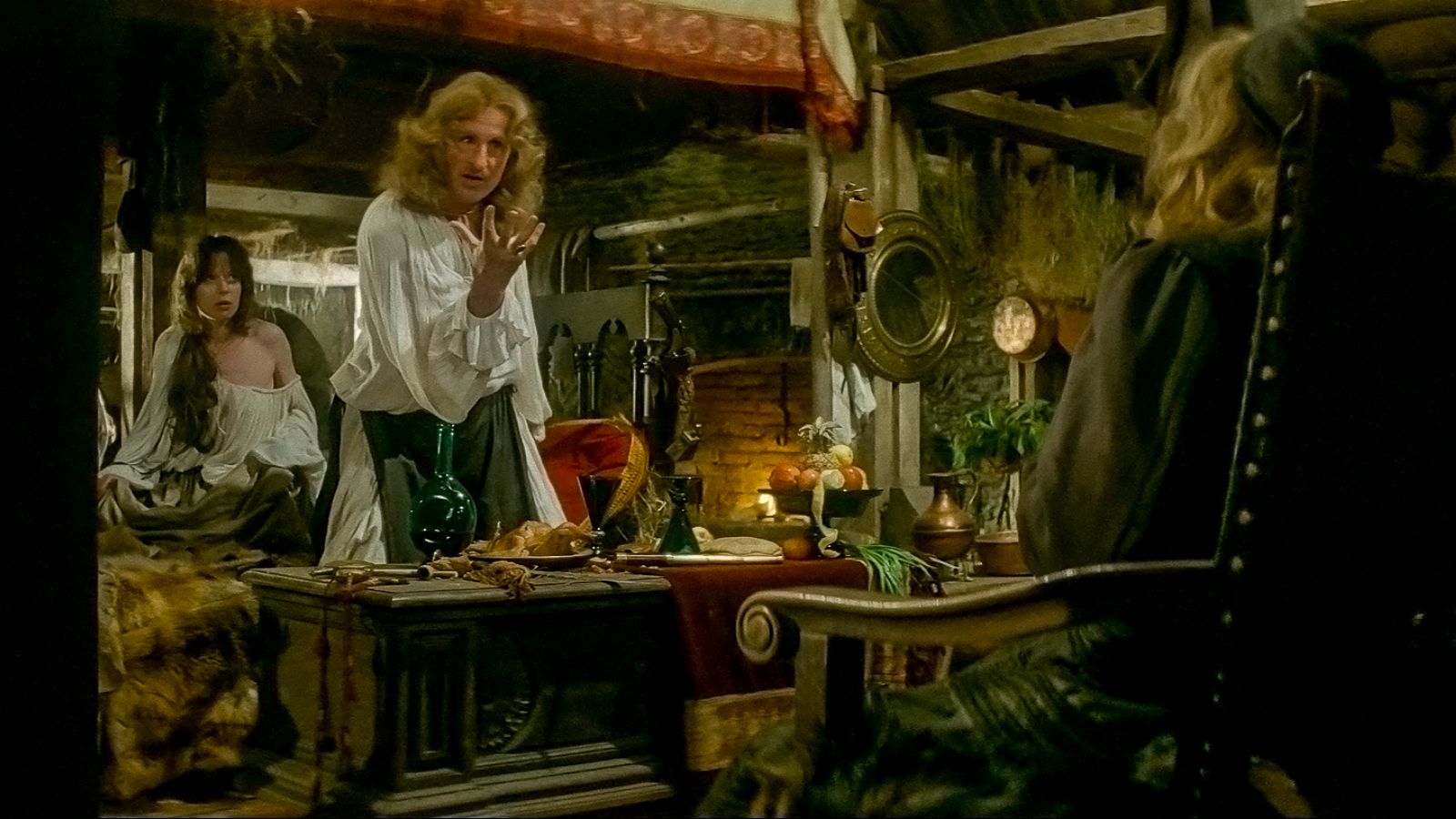
Memoirs of a Sinner / © WFDiF
Has melds his interest in 19th-century literature and knack for conjuring the fantastic with this delirious and beautifully crafted adaptation of James Hogg’s 1824 novel The Private Memoirs and Confessions of a Justified Sinner. Set in Scotland, the film concerns a deceased young man whose corpse is exhumed by grave robbers; the young man returns to life in order to recount the events that preceded his demise—namely, his efforts to prove that committing foul deeds does not disqualify someone from the possibility of redemption, as well as his curious relationship with his own bloodthirsty doppelgänger. Digital restoration by DI Factory, 2019.
Wednesday, March 27 at 6:00pm
Sunday, March 31 at 1:30pm
The Tribulations of Balthazar Kober
Wojciech Jerzy Has, 1988, Poland, 115m
Polish with English subtitles
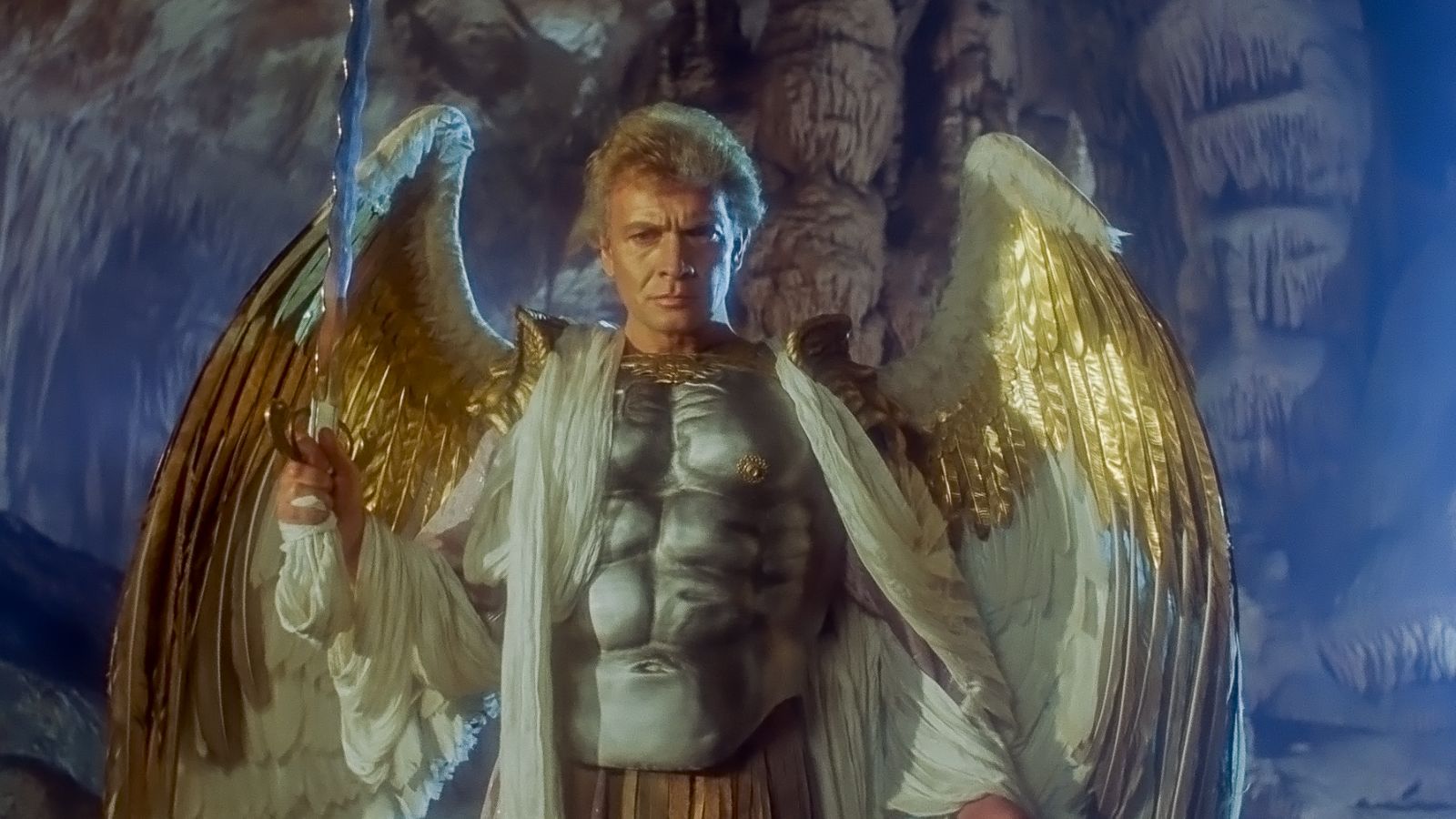
The Tribulations of Balthazar Kober / © WFDiF
One final journey for Has’s final film: The Tribulations of Balthazar Kober (adapted from a novel by the French writer Frédérick Tristan) tags along with a young alchemy student (Rafal Wieczynski) and his teacher (Michael Lonsdale) in 16th-century Europe as they flee the Inquisition, embarking on a voyage across plague-ravaged Germany. As the men traverse this bleak landscape, they meet a succession of eccentric religious figures. Has’s work has frequently drawn upon the tradition of the picaresque to striking effect, so it’s only fitting that his testament film marked one last long, strange trip for the Polish visionary. Digital restoration by Fixafilm, 2019.
Wednesday, March 27 at 8:30pm
Sunday, March 31 at 4:00pm
WOJCIECH JERZY HAS SHORTS PROGRAM
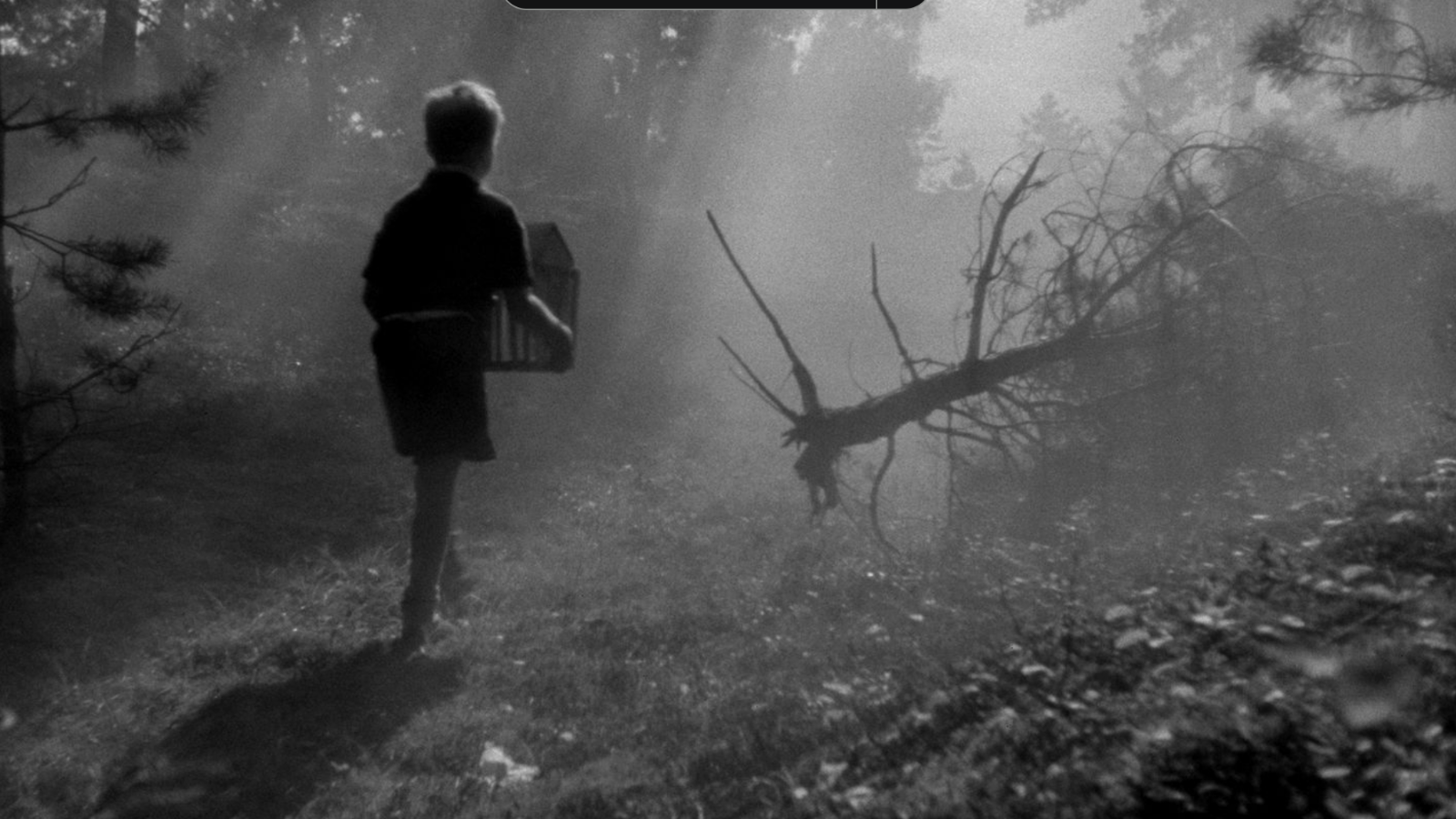
John’s Feeder / © WFO
John’s Feeder (Wojciech Jerzy Has, 1952, Poland, 15m)
Digital restoration by WFO, 2019.
Herbalists of the Stony Valley (Wojciech Jerzy Has, 1952, Poland, 15m)
Digital restoration by DI Factory, 2023.
Cultural Review 2/53 (Wojciech Jerzy Has, 1953, Poland, 13m)
Digital restoration by WFO, 2019.
Our Team (Wojciech Jerzy Has, 1955, Poland, 33m)
Digital restoration by DI Factory, 2023.
This program collects several of Has’s early short film works in both fiction and documentary. John’s Feeder is a miniature parable about a young boy who misunderstands the function of a bird feeder. Herbalists of the Stony Valley follows young students as they pick herbs in order to save up enough money to purchase a film projector. Cultural Review 2/53 is a kind of early documentary tour of a museum of musical instruments. Finally, Our Team is a beautiful document (in color) of a Polish dance ensemble’s rehearsals.
Saturday, March 30 at 1:00pm
DI FACTORY
DI Factory is a leading Polish postproduction company, heavily involved in digital restoration and distribution of Polish classics. The company was established in 2013 in Warsaw, Poland. It specializes in post-production for features and TV series, including on-set services, digital intermediate, advanced color grading, editing, VFX, mastering, and data archiving. The company’s portfolio covers post-production of over 250 titles, including the Oscar winner Ida, four Oscar-nominated films (Loving Vincent, Cold War, Corpus Christi, IO), and many productions awarded at festivals in Cannes, Berlin, Venice, Locarno, and others.
Together with its partner company, reKINO, DI Factory specializes in digital restoration and has already worked on more than 200 titles, including feature films of great Polish directors like Andrzej Wajda, Krzysztof Kieślowski, Krzysztof Zanussi, Wojciech Jerzy Has, and others. DI Factory also created a special promotional program, Polish Cinema Classics, to promote Polish classics at the film festivals worldwide. DI Factory was the initiator and main organizer of the project “Martin Scorsese Presents: Masterpieces of Polish Cinema,” a unique retrospective of digitally restored classics of Polish cinematography, which was presented in the United States, Canada, Australia, China, Great Britain, France, and Spain. The company has released a unique collection of the movies presented in the retrospective on 24 Blu-ray discs.
In 2023 DI Factory published an anthology of 14 feature films and 11 short forms by Wojciech Jerzy Has on 16 Blu-ray discs, with English and French subtitles, accompanied with a book with essays about Has movies written specially for this anthology. For more information, visit di-factory.com and follow Facebook and Instagram.


